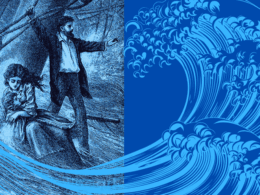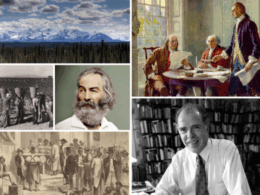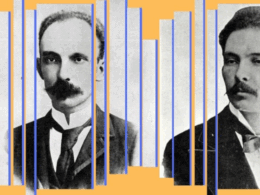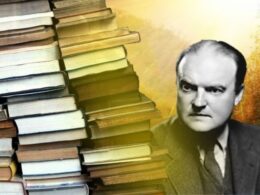Who doesn’t love lists?
And who doesn’t love a good literary list in particular? That is, the kind that stirs debate—and brings readers back to books and authors.
We at Library of America enjoy this kind of diversion as much as anyone else on the internet. Because we’ve never offered any lists on our site before, and because, like many of you, we had ample opportunity to get reacquainted with our home libraries this spring, we came up with the following selection—by no means authoritative, we emphasize, and emphatically subjective—of fifty of our favorite opening lines from American novels published up through the year 2000. (We actually came up with a list of one hundred opening lines, but decided to parcel it out in two halves as a way of extending the fun. So watch this space for Part Two in the near future.)
Some of these sentences begin novels we publish, others begin novels we don’t publish, and still others begin novels we might hope to publish one day.
The fifty lines appear below without identification. How many can you identify?
Once you’ve scrolled through the entire list, click here to see the author, the title of the novel in which the sentence appears, and its date of first publication.
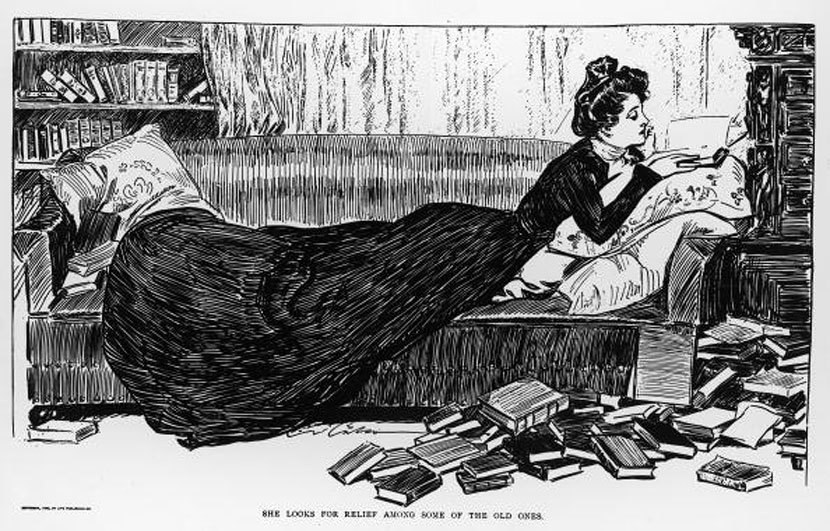
1. Nobody died that year.2. We are talking now of summer evenings in Knoxville, Tennessee in the time that I lived there so successfully disguised to myself as a child.
3. Everyone had always said that John would be a preacher when he grew up, just like his father.
4. “Are you sure, sweetheart, that you want to be well?”
5. Early in 1880, in spite of a well-founded suspicion as to the advisability of perpetuating that race which has the sanction of the Lord and the disapproval of the people, Hedvig Volkbein, a Viennese woman of great strength and military beauty, lying upon a canopied bed of a rich spectacular crimson, the valance stamped with the bifurcated wings of the House of Hapsburg, the feather coverlet an envelope of satin on which, in massive and tarnished gold threads, stood the Volkbein arms—gave birth, at the age of forty-five, to an only child, a son, seven days after her physician predicted that she would be taken.
6. I am an American, Chicago born—Chicago, that somber city—and go at things as I have taught myself, freestyle, and will make the record in my own way: first to knock, first admitted; sometimes an innocent knock, sometimes a not so innocent.
7. This was a Golden Age, a time of high adventure, rich living and hard dying . . . but nobody thought so.
8. I had this story from one who had no business to tell it to me, or to any other.
9. I lost an arm on my last trip home.
10. A green and yellow parrot, which hung in a cage outside the door, kept repeating over and over: “Allez-vous-en! Allez vous-en! Sapristi! That’s all right!”
11. Her first name was India—she was never able to get used to it.
12. There is nothing in which American Liberty, not always as much restrained as it might be, has manifested a more decided tendency to run riot, than in the use of names.
13. Once a guy stood all day shaking bugs from his hair.
14. From a little after four o’clock until almost sundown of the long still hot weary dead September afternoon they sat in what Miss Coldfield still called the office because her father had called it that—a dim hot airless room with the blinds all closed and fastened for forty-three summers because when she was a girl someone had believed that sight and moving air carried heat and that dark was always cooler, and which (as the sun shone fuller and fuller on that side of the house) became latticed with yellow slashes full of dust motes which Quentin thought of as being flecks of the dead old dried paint itself blown inward from the scaling blinds as wind might have blown them.
15. In my younger and more vulnerable years my father gave me some advice that I’ve been turning over in my mind ever since.
16. Who listens?
17. Now folks today we’re going to auction off Missus Pimber’s things.
18. I first heard Personville called Poisonville by a red-haired mucker named Hickey Dewey in the Big Ship in Butte.
19. I get the willies when I see closed doors.
20. Ships at a distance have every man’s wish on board.
21. She waited, Kate Croy, for her father to come in, but he kept her unconscionably, and there were moments at which she showed herself, in the glass over the mantel, a face positively pale with the irritation that had brought her to the point of going away without sight of him.

21. Every summer Lin Kong returned to Goose Village to divorce his wife, Shuyu.23. In the Oakland Greyhound all the people were dwarfs, and they pushed and shoved to get on the bus, even cutting in ahead of the two nuns, who were there first.
24. There were 117 psychoanalysts on the Pan Am flight to Vienna and I’d been treated by at least six of them.
25. Riding up the winding road of Saint Agnes Cemetery in the back of the rattling old truck, Francis Phelan became aware that the dead, even more than the living, settled down in neighborhoods.
26. “There are dragons in the twins’ vegetable garden.”
27. It was the last letter in Irene Redfield’s little pile of morning mail.
28. I’ll make my report as if I told a story, for I was taught as a child on my homeworld that Truth is a matter of the imagination.
29. The day my wife left she gave me a list of who I was.
30. In the beginning, sometimes I left messages in the street.
31. “What does he mean, ‘I suppose you want an explanation’? He doesn’t explain anything.”
32. See the child.
33. In the town there were two mutes, and they were always together.
34. At sunrise on a first of April, there appeared, suddenly as Manco Capac at the lake Titicaca, a man in cream-colours, at the water-side in the city of St Louis.
35. I was surprised to see a white man walk into Joppy’s bar.
36. There once lived a man named Martin Dressler, a shopkeeper’s son, who rose from beginnings to a height of dreamlike good fortune.
37. Lolita, light of my life, fire of my loins.
38. This story at no point becomes my own.
39. Francis Marion Tarwater’s uncle had been dead for only half a day when the boy got too drunk to finish digging his grave and a Negro named Buford Munson, who had come to get a jug filled, had to finish it and drag the body from the breakfast table where it was still sitting and bury it in a decent and Christian way, with the sign of its Saviour at the head of the grave and enough dirt on top to keep the dogs from digging it up.
40. Ba-room, ba-room, ba-room, baripity, baripity, baripity, baripity—Good.
41. Abbie Crunch began to walk slowly as she turned into Dumble Street, market basket over her arm, trying not to look at the river; because she knew that once she saw it with the sun shining on it she would begin to think about Link, to worry about Link, to remember Link as a little boy.

42. It was a queer, sultry summer, the summer they electrocuted the Rosenbergs, and I didn’t know what I was doing in New York.43. In sleep she knew she was in her bed, but not the bed she had lain down in a few hours since, and the room was not the same but it was a room she had known somewhere.
44. The small white steamer, Peter Stuyvesant, that delivered the immigrants from the stench and throb of the steerage to the stench and throb of New York tenements, rolled slightly on the water beside the stone quay in the lee of the weather barracks and new brick buildings of Ellis Island.
45. I was born on a farm on Whileaway.
46. If you really want to hear about it, the first thing you’ll probably want to know is where I was born, and what my lousy childhood was like, and how my parents were occupied and all before they had me, and all that David Copperfield kind of crap, but I don’t feel like going into it, if you want to know the truth.
47. Ralph was ten and Molly was eight when they had scarlet fever.
48. Once an angry man dragged his father along the ground through his own orchard.
49. Men had always wanted her, this Karintha, even as a child, Karintha carrying beauty, perfect as dusk when the sun goes down.
50. You don’t know about me without you have read a book by the name of “The Adventures of Tom Sawyer”; but that ain’t no matter.
Continue to “Fifty of the most memorable opening lines in American novels—revealed!”
